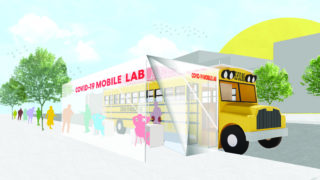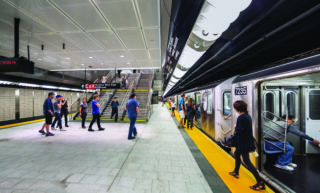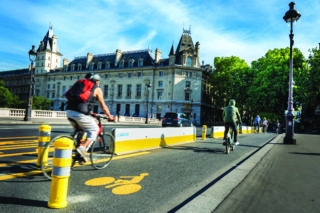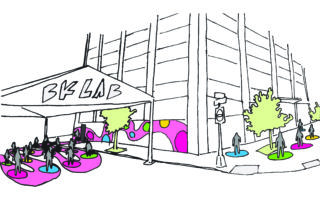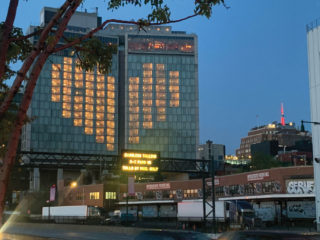
Last September, when our team was planning Oculus themes for the upcoming year, we decided to focus on “Urban Transportation at All Scales” for our Summer 2020 issue. At the time, upgrades at LaGuardia Airport and proposals addressing the crumbling Brooklyn-Queens Expressway were in the works; new ferry routes were proliferating in NYC’s waterways; and bikers and pedestrians were continuing to gain ground in the city streets.
Six months later, when we had our (virtual) Oculus Committee meeting in mid-March, we voted to shift the issue theme to “Urban Transportation in a Time of Crisis.” In my editor’s letter for the Spring 2020 issue, I mourned the loss of architect, critic, and contributor Michael Sorkin to COVID-19. This terrifying new disease would go on to expose catastrophic design flaws in systems intended to ensure our health and well-being, revealing planning that was grossly inadequate and unequal.
And now, three months after that meeting, this issue already feels out-of-date. But I hope it helps document the beginning of a transformational moment in history.
In late May, violent images of police brutality towards Black citizens riveted the world’s attention. These inhumane acts, amid the disparities of the pandemic, laid bare the ultimate design flaw of U.S. society: structural racism. It’s a daily, mortal threat to people of color living in our country, and it’s an existential threat to the country itself in its perpetuation of inequality.
The articles in this issue were largely completed before the watershed weeks of late May and June. We’ve edited down the pages to represent work that may remain relevant to the conversation happening now. We acknowledge that what remains, however, which focuses on urban transportation and mobility in the time of the pandemic, does not adequately engage in the critical discussion our nation is having about race and social justice, particularly how structural racism reveals itself in design and the built environment. This conversation must be ongoing and inclusive, and Oculus commits to addressing this more thoughtfully and directly in our pages going forward.
A final note: Since our last issue, the architecture community has lost another leading voice, Bill Menking, co-founder and editor-in-chief of The Architect’s Newspaper. Bill was a mentor to many architecture and design journalists (myself included), and, like Michael Sorkin, was committed to promoting debates about the role of architecture in society that engaged those beyond the profession. I hope that by more actively participating in conversations that matter, we can honor the memory of both.









